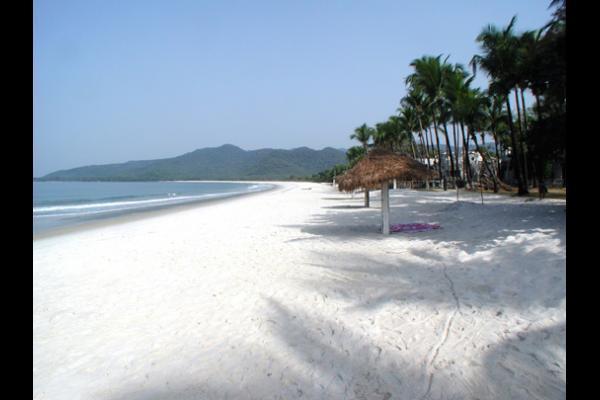 Hello everyone. I want to tell all of you about another exciting opportunity for us to pay it forward. Earlier in the year, I wrote an article about volunteerism. My first opportunity to teach other nurses anesthesia education outside of the United States was in Eritrea (Eastern Africa). Now I am honored to have another opportunity to again be the Nurse Anesthesia program director for a joint venture between Health Volunteers Overseas and Johns Hopkins University. I worked with Dr. John Sampson of Johns Hopkins for many years in the advancement of anesthesia education. We first met and worked together as colleagues at Walter Reed Army Medical Center when I was on active duty in the early 2000’s. Since then, Dr. Sampson and I have collaborated on anesthesia education overseas with great success. Our next site is Sierra Leone in Western Africa.
Hello everyone. I want to tell all of you about another exciting opportunity for us to pay it forward. Earlier in the year, I wrote an article about volunteerism. My first opportunity to teach other nurses anesthesia education outside of the United States was in Eritrea (Eastern Africa). Now I am honored to have another opportunity to again be the Nurse Anesthesia program director for a joint venture between Health Volunteers Overseas and Johns Hopkins University. I worked with Dr. John Sampson of Johns Hopkins for many years in the advancement of anesthesia education. We first met and worked together as colleagues at Walter Reed Army Medical Center when I was on active duty in the early 2000’s. Since then, Dr. Sampson and I have collaborated on anesthesia education overseas with great success. Our next site is Sierra Leone in Western Africa.
The primary lecture site in country will be the Prince Christian Maternity Hospital. Johns Hopkins already has a presence in Sierra Leone, so no one needs to worry that we are going to the site as the first educators from the U.S. Currently one of the goals of the Hopkins program is to implement a distance-learning program for anesthetists in Sierra Leone. Instructors in the program would be from Johns Hopkins, but also interested volunteers from HVO may be invited to participate. Another CRNA colleague of mine, Terry English and I would screen and mentor HVO nurse anesthesia volunteers for involvement in Sierra Leone. Length of engagement would be a minimum of 2 weeks. Pending funding for the next iteration of nurse anesthesia students from the health ministry, the goal is to begin sending volunteers in March 2013.
The following list is the desired structure of the HVO / JHH program developed by Dr. Sampson and his colleagues at Hopkins.
• There shall be an anesthesiology program director and a nurse anesthetist program director.
• The two program directors will need to continuously communicate with each other about the activities and problems encountered in their respective areas.
• Volunteers will come from a nation-wide pool of applicants and all volunteers will have to pass through the usual HVO process for registering and serving as a volunteer.
• A Johns Hopkins based meeting will take place monthly where nurse anesthetists and anesthesiology physicians will discuss methods of enhancing the impact of educational efforts and methods of assessing this impact.
• An effort will be made to teleconference and video-teleconference interested individuals who are remote to Johns Hopkins Hospital so that they may participate in the development of nurse anesthesia education in Sierra Leone.
• Every effort will be made to accommodate the time of year choices made by the volunteer applicants.
• Every effort will be made to coordinate the trips so that experienced travelers make trips in pairs with novice travelers.
• All volunteers are asked to keep a record of both the intellectual and material contributions that they make toward improving nurse anesthesia education in Sierra Leone.
• A discussion group web site will be established whereby Sierra Leone nurse anesthetists are able to discuss clinical and academic questions with past and future volunteers to the program.
According to Dr. Sampson, the latest information is as follows. Current airfare ticket prices are approximately $1300. Of course this will vary and the individual volunteer will need to research this accordingly. The hotel rate negotiated is currently $80 per day (breakfast included) other meals are $7 per day. Transportation from the hotel to hospital via taxi is about $5 each way. Regarding cabs, we will generate a list of cab drivers with cell phones and encourage visitors to use the same drivers daily because in the morning the cab drivers are so busy picking up groups of people that finding a dedicated cab to the hospital can be a challenge.
The hotel is the Kona Lodge (http://thekonalodgesl.com). The distance to the hospital is about 7 miles. But due to traffic congestion, the trip can take up to 45 minutes. The best time to travel to the hospital in the shortest amount of time would be in the early morning hours.
Our goal is 12 volunteers per year. A standard classroom is available and is dedicated to nurse anesthesia education. An LCD projector can be arranged for presentations. Johns Hopkins will assist with education program development.
Even though the country made headlines in the 90’s because of hostilities in the nation, since the peace of 2002 Sierra Leone has become a vibrant city attracting investors and holiday travelers alike. Reconstruction is evident in many parts of the country. However, Freetown has the usual Western comforts. Plus the beaches are beautiful and not yet crowded by commercial ventures. Leisure activities are centered around the Aberdeen Beach area. Regarding attire for the volunteers, shorts pants (shorts, mini skirts) are not recommended. Casual to business casual dress is appropriate attire. Scrubs are to be worn in the hospital only. Standard urban precautions against petty theft are prudent and plenty of Christian churches from a variety of denominations are present.
I urge any of you who read this to strongly consider volunteering. Visit the HVOusa.org website and learn about what we do on a large scale.
If you have any questions please contact me at lexterrae1230@gmail.com.
 Pamela Chambers, CRNA
Pamela Chambers, CRNA
 A new opportunity for volunteering has emerged. As the need for qualified anesthesia providers in developing areas of the world increases, there is a great need for anesthesia education in Sierra Leone (western Africa). I am working with Johns Hopkins University and Health Volunteers Overseas with this project to educate CRNAs. If you are motivated to teach our critical anesthesia skills (basics regarding drugs, techniques and use of the anesthesia machine) please contact me so that we can discuss this opportunity. I have worked with this education team for many years providing education and mentoring in Eritrea (eastern Africa). We expect eager and dedicated students and positive results at this site. Please consider volunteering. I can be reached at pc_crna@yahoo.com
A new opportunity for volunteering has emerged. As the need for qualified anesthesia providers in developing areas of the world increases, there is a great need for anesthesia education in Sierra Leone (western Africa). I am working with Johns Hopkins University and Health Volunteers Overseas with this project to educate CRNAs. If you are motivated to teach our critical anesthesia skills (basics regarding drugs, techniques and use of the anesthesia machine) please contact me so that we can discuss this opportunity. I have worked with this education team for many years providing education and mentoring in Eritrea (eastern Africa). We expect eager and dedicated students and positive results at this site. Please consider volunteering. I can be reached at pc_crna@yahoo.com


